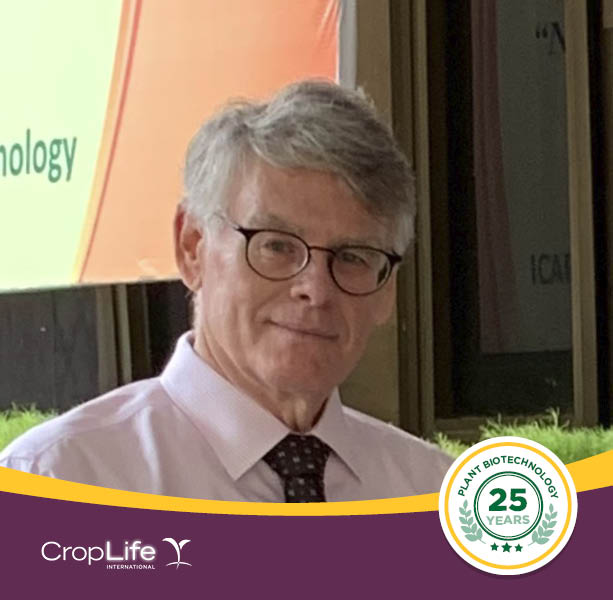
Donald MacKenzie
When it comes to hunger, Don MacKenzie is concerned about more than just the rumblings of his own stomach.

But simply breeding better plants isn’t enough. If they’ve been developed through biotechnology, they also have to pass the scrutiny of regulators. And that’s where MacKenzie, an international expert in agriculture regulatory systems, comes in. He’s been instrumental in helping to shepherd biotech crops through complex regulatory approval systems, such staple food crops like Bt cowpea (black eyed peas) in Nigeria and vitamin A-fortified Golden Rice in the United States, Canada, Bangladesh, and the Philippines.
Golden Rice is “a perfect example of using cutting-edge technology to address a really serious problem around nutrition,” he notes.
“The history of agriculture has been one of using the best methods at our disposal to modify edible plants into the food crops we have now. Initially, these tools were limited to simple selection of plants with desirable characteristics. Then, with the understanding of genetics, crossbreeding, hybrids, and mutation breeding has become possible. Today, with advances in plant science and biotechnology, we have the tools to introduce specific characteristics in a very precise way. “

“If we care about the well-being of people everywhere, then we need to care about this kind of work,” he says. “Over and over, it has been shown that access to technology has raised farm incomes, which in the developing world especially, results in improved nutritional status, more education opportunities for children and more stable communities. Plant biotechnology is an enabling technology that ultimately leads to better livelihoods and is supportive of human and planetary health.”